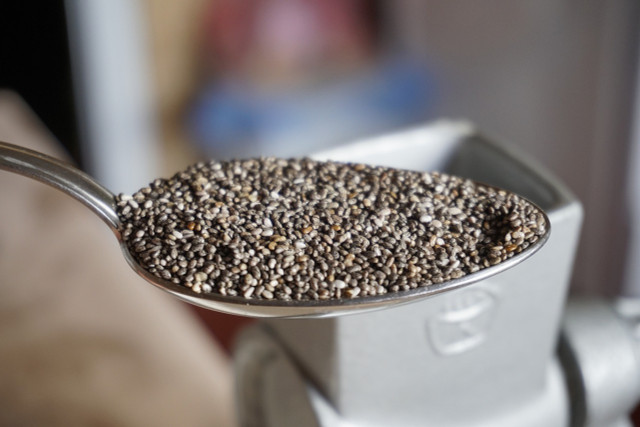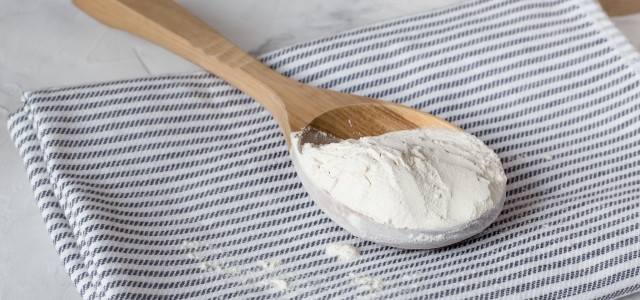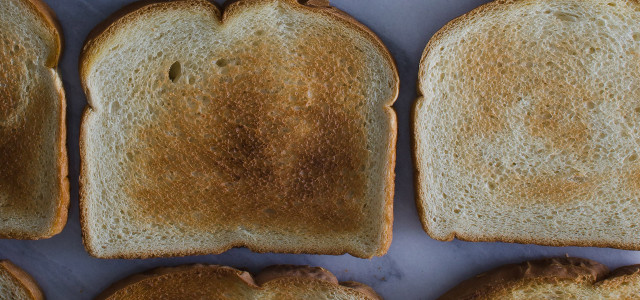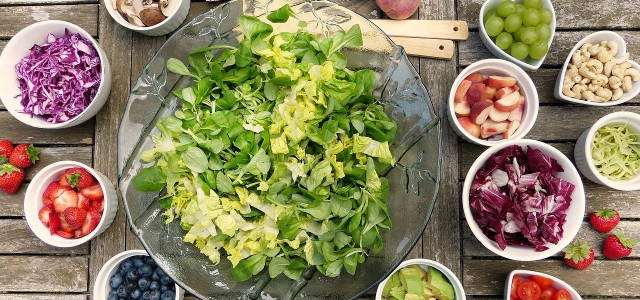Not sure whether xanthan gum is vegan? It can be challenging to decide if ingredients in a product are okay to consume. In this article, we will discuss what xanthan gum is, how it is used, and whether it is vegan.
Xanthan gum is a polymer produced by the fermentation of the bacteria “Xanthomonas campestris”, from which it gets its name, with a glucose carbohydrate substrate (sugar) usually derived from corn, soy, or wheat.
A popular food additive, xanthan gum acts as a binder, thickener, or emulsifier. It is commonly used in gluten-free cooking because of its ability to bind, thicken and emulsify gluten-free ingredients. The gum powder is typically found in the baking aisle of the grocery store, often grouped together with gluten-free flours and baking mixes.
Xanthan gum can also be used to make personal care products like toothpaste and shampoo, or industrial products like toilet cleaner and paint.
Is Xanthan Gum Good or Bad?

(Foto: CC0 / Pixabay / Alicia_Harper)
Some people have health concerns about the use of xanthan gum in food. It is a soluble fiber, which is a carb your body cannot break down. Instead, it slows digestion by absorbing water and turning it into a gel-like substance that your body is unable to digest easily. Because of this, it doesn’t provide any calories or nutrients. It is also not advised for those with digestive issues because it can have a laxative effect, make digestive issues worse, or aggravate a sensitive stomach.
Parents of infants should also be cautious, as xanthan gum has been linked to fatal cases of the disease necrotizing enterocolitis (NEC) in infants, which inflames intestinal tissue and causes it to die. For this reason, it is better to avoid feeding infants under one milk thickeners or any products containing xanthan gum.
It’s not all bad news, however. In fact, xanthan gum could offer some health benefits for diabetics. It lowers blood sugar by slowing digestion, which affects how quickly sugar can enter the bloodstream. One 2009 article even described its cancer-fighting properties, and other studies found it helped oropharyngeal dysphagia patients swallow better.
For most people, it is safe to consume up to 15 grams of xanthan gum per day, but generally, the amount used in food products is very small. Those with food allergies should check how the xanthan gum was made as some manufacturers use common food allergens like corn, soy, wheat, and dairy products to create the gum.
Is Xanthan Gum Vegan?
Xanthan gum itself does not contain any non-vegan ingredients. However, animal products are sometimes used in its production process. For example, low-cost whey products are sometimes used as a production medium in purifying the gum.
Xanthan gum is often used as an egg replacement in store-bought vegan food products to help bind the ingredients. Of course, those vegans who prefer to practice minimalist living tend to avoid additives altogether, including xanthan gum. They opt for home-cooked and local foods over processed and semi-processed foods. Other vegans choose to use xanthan gum for things like vegan baking or vegan cheesemaking.
Many xanthan gums are vegan. Look out for products marked suitable for vegans or vegetarians, or those containing no other animal products.
Substitutes for Cooking, Baking, and More



(Foto: CC0 / Pixabay / nikitozawr)
Some people prefer not to buy or use products containing additives like xanthan gum. Whether you’re looking for a vegan alternative, an egg substitute, a gluten-free baking replacement, or an alternative additive for your cosmetics, there are many more options.
- Psyllium husk – Another soluble fiber, psyllium husk acts much like xanthan gum in your gut. Exchange 1 part of xanthan gum with 2 parts psyllium husk for your baking needs.
- Chia seeds – The perfect egg replacement that’s also high in omega 3s. Replace each tablespoon of xanthan gum with the same amount of chia seeds and add double the amount of boiling water.
- Agar agar – A vegan algae-derived alternative to gelatin. Depending on your baking needs, add 1 teaspoon to each cup of gluten-free flour for bread baking, or 1/2 teaspoon to each cup of gluten-free flour for cookies, cakes, and muffins.
- Guar gum – Guar gum is taken directly from the Guar plant as opposed to the man-made xanthan gum. It tends to have a longer shelf life and better thickening properties. Guar gum replaces xanthan gum in a 3:2 ratio. For example, use 3 parts of guar gum for every 2 parts of xanthan gum in your recipe.
Read more:
- Figs Are Not Vegan. Here’s Why
- Vegan Egg Substitute: 6 Ideas for Vegan Egg Replacers
- Clever Ways to Reduce Your Carbon Footprint
Important Information regarding Health-related Topics.
** Links to retailers marked with ** or underlined orange are partially partner links: If you buy here, you actively support Utopia.org, because we will receive a small part of the sales proceeds. More info.Do you like this post?








